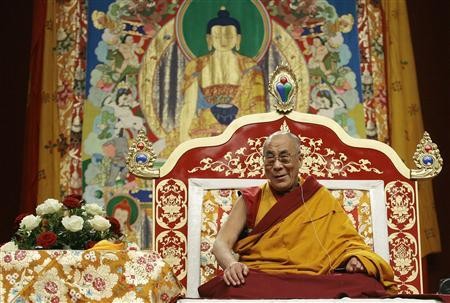While the new years of both Tibetan Buddhism and Chinese culture were celebrated on the same day this year, tension has overshadowed the Tibetan Autonomous Region's relationship with the region's exiled faith leader, who was placed in the spotlight on Monday for comments regarding reincarnation.
The discussion formed part of the proceedings of one of China's top-two political gatherings, the third session of the National Committee of the Chinese People's Political Consultative Conference (CPPCC).
According to Padma Choling, who is the chairman of the Standing Committee of the Tibet Autonomous Regional People's Congress and was described in Chinese media this week as a "top Tibetan official," the Dalai Lama is now guilty of blasphemy after he said that the Tibetan Buddhism tradition of reincarnation should not continue any longer after his death.
The remarks of the exiled Tibetan Buddhist, who is now in his 80th year, can be traced back to December of last year, when the ailing lama said that he saw no place for his traditional religious role after he passes away.
The tenets of Tibetan Buddhism state that the senior lama's soul is reincarnated in a child's body at the time of dying.
However, the December comments from the Dalai Lama led Choling to assert before his governmental peers that the reincarnation process should follow strict Tibetan Buddhist conventions and rituals.
The chairman made his position clear, pointing out that: "It's not up to the Dalai Lama."
In terms of a way forward, Choling explained that the opportunity for a meeting or discussion is "always open" for the 14th Dalai Lama, but he clarified that the exiled lama's attitude would entirely determine the nature of the interaction and which topics would be broached during the dialog.
A research academic reaffirmed Choling's stance on Tuesday, telling local media that the "reincarnation system" is "never just a religious affair, nor is it a personal affair for the 14th Dalai Lama."



























